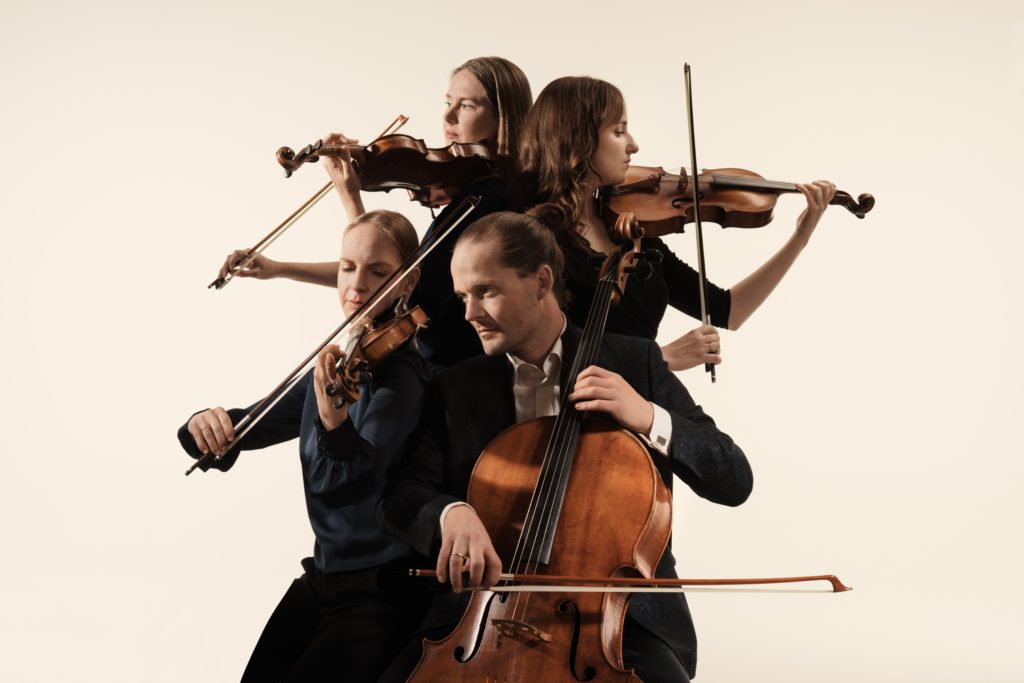
IN the first of four concerts, which were to include all three of Tchaikovsky’s string quartets, the Dudok Quartet of Amsterdam gave the first of them alongside other Russian works by Glinka and Shostakovich.
Tchaikovsky wrote all his quartets in his thirties. He had produced a successful Allegro for string quartet as a graduation exercise, based on a Ukrainian folk tune, so he knew his onions by the time he embarked on No 1 in D, Op 11. It was the making of him outside Russia, largely because of its fetching Andante. But the Dudoks proved it has much more to offer.
They opened dead-pan, non-vibrato, reflecting the second half of the composer’s Moderato e semplice instruction. The movement remained restrained, traces of warmth only really detectable in the first violin.
The slow movement’s famous melody was equally intimate, almost bleak, the ensemble resisting the temptation to make too much of it. One admired that: the music was allowed to speak for itself. When Tolstoy heard it, he was moved to tears; we could understand why.
The sprightly scherzo bordered on the skittish, its strong accents spilling over into its trio. But it was in the finale that the Dudoks showed their true mettle. Their ensemble remained remarkably taut right through to the vivacious coda. We might have heard more from the viola and later the cello in their presentation of the second theme, but teamwork remained the name of the game. We could not complain.
We encountered Tchaikovsky briefly again after the interval, in two months of The Seasons arranged from the piano original: March (The lark’s song) and July (The reaper’s song), tastefully done.
They were but a prelude to Shostakovich’s Quartet No 5 in B flat minor, which was premiered in late 1953 only after the post-Stalin “thaw” had set in (although written the previous year): the composer had considered its searing personal diary too incendiary before then.
The Dudoks treated it as a Russian novel, piling incident upon incident over a marvellous motor- rhythm generated by the cellist. Its climax – the three upper voices in unison – was approached with gradually increasing tension, after some brief rays of sunshine from the leader.
The jaunty little dance that followed changed imperceptibly into something much more vicious, ending in recitatives from all the players, an angry cello last. The group’s focus was intense throughout. This was Shostakovich with his heart on his sleeve – and all the more telling for that.
The evening had opened with an arrangement of Glinka’s overture to Ruslan and Lyudmila, frothy enough but hardly a substitute for the orchestral version. But keep an eye out for the quartet’s forthcoming recording of Tchaikovsky’s quartets. On this evidence it could be something special.
Review by Martin Dreyer
